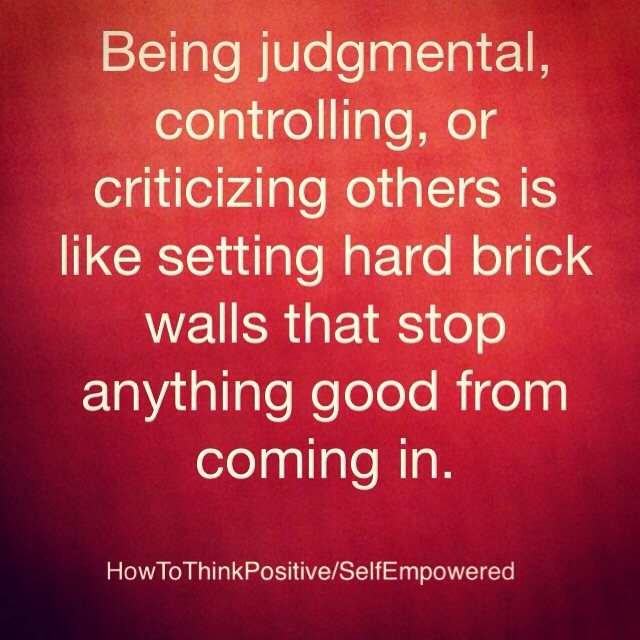Perspective is key when it comes to how we view others, and constantly seeing them in a negative light doesn’t do anyone any favors. In this self-reflective blog post, we explore into the dangers of being overly critical and judgmental towards others under the guise of being ‘realistic’. Let’s explore how shifting our perspective can lead to a more positive and fulfilling way of interacting with the world around us.
This post contains Amazon affiliate links, meaning I may earn a small commission if you purchase through my links, at no extra cost to you. Note: We aim to provide accurate product links, but some may occasionally expire or become unavailable. If this happens, please search directly on Amazon for the product or a suitable alternative.
The Myth of Being “Realistic” vs. Being Judgmental
Hiding Behind a Mask of “Realism”
Realistic. I used to think being ‘realistic’ was a badge of honor, a sign of maturity and wisdom. I’d tell myself, ‘I’m just being realistic, that’s never going to happen’ or ‘I’m just being realistic, I’m not good enough for that.’ But let’s be honest, most of the time I was just making excuses, hiding behind a mask of ‘realism’ to avoid taking risks or facing my own inadequacies.
The Truth About Being “Realistic”
Truth. I’ve lost count of how many times I’ve caught myself saying, ‘I’m not a jerk, I’m just realistic’ – usually after some well-intentioned friend or family member has called me out for being, well, a bit of a jerk. It’s a clever little phrase, one that allows me to maintain a veneer of self-righteousness while simultaneously justifying my own crappy behavior.
Understanding that being “realistic” can sometimes be a cover-up for being judgmental is an imperative step towards personal growth and self-awareness. By challenging our notions of what it means to be realistic, we can break free from the constraints we place on ourselves and others, opening up new possibilities and opportunities for growth.
The Jerk Within
Rationalizing Crappy Behavior
Any time we catch ourselves using phrases like ‘I’m not a jerk, I’m just realistic,’ we may be falling into the trap of rationalizing our own crappy behavior. It’s easy to hide behind the guise of being ‘realistic’ as a way to justify actions or attitudes that are less than kind. But in reality, it’s just a way of avoiding taking responsibility for our words and actions.
Blaming the World for Our Shortcomings
Crappy behavior often stems from a deep-seated need to blame the world for our own shortcomings. By using phrases like ‘I’m just being realistic,’ we deflect accountability and shift the blame onto external factors. However, as the article highlights, true growth comes from acknowledging our own flaws and working towards self-improvement.
Within this self-reflection journey, it’s imperative to recognize the tendencies to rationalize and deflect blame. By holding ourselves accountable and striving to be more compassionate and understanding, we can work towards becoming the best version of ourselves.
The Power of Self-Deception
If we’re always seeing others negatively, it can be a sign that we are deceiving ourselves in some way. Self-deception can manifest in different ways, often allowing us to justify our negative behavior towards others. It’s a defense mechanism that prevents us from acknowledging our own faults and shortcomings, leading us to project them onto others instead.
Convincing Ourselves We’re Right
On the surface, convincing ourselves that we are right and others are wrong may seem like a way to protect our ego. However, in reality, it only serves to perpetuate a cycle of negative thinking and behavior. By constantly seeking validation for our beliefs and opinions while simultaneously shutting down differing viewpoints, we are closing ourselves off from growth and self-awareness.
Avoiding Accountability
Avoiding accountability is a common pitfall of self-deception. By convincing ourselves that we are always right and others are wrong, we absolve ourselves of any responsibility for our actions. This allows us to continue behaving poorly towards others without facing the consequences or making changes to improve ourselves.
With self-reflection and a willingness to confront uncomfortable truths about our behavior, we can break free from the cycle of self-deception. It’s important to challenge our own beliefs and biases, and to take ownership of our actions in order to foster healthier relationships and personal growth.
The Comfort Zone of Negativity
Staying Safe in Our Own Minds
To facilitate feelings of comfort and stability, sometimes we create a mental realm where negativity reigns supreme. In this space, we convince ourselves that negative judgments are akin to being ‘realistic’. We may use this as a self-preservation tactic to avoid challenging ourselves and stepping out of our comfort zones. However, staying in this negative comfort zone can hinder personal growth and prevent us from truly connecting with others in a positive way.
The Fear of Taking Risks
Minds often become trapped in a cycle of negativity because taking risks, whether big or small, can be frightening. Stepping out of the negative bubble means facing uncertainty and vulnerability, which can feel daunting. However, it’s important to recognize that overcoming this fear and embracing new experiences is vital for personal development and growth.
Plus, continually staying within the confines of negativity can limit our potential and prevent us from discovering new opportunities for happiness and fulfillment. By acknowledging and challenging the fear of taking risks, we can begin to break free from the comfort zone of negativity and open ourselves up to a world of possibilities.
The Unrealistic Achievers
Defying the Odds and Pushing Boundaries
Not all achievers are bound by the constraints of so-called realism. One of the most inspiring traits of successful individuals is their ability to defy the odds and push boundaries, regardless of what society deems to be realistic. These are the people who set their sights on seemingly impossible goals and tirelessly work towards achieving them.
Refusing to Accept the Status Quo
Odds are, the most successful individuals are not the ones who conform to the status quo or settle for mediocrity. They are the ones who challenge the norm, question the expected, and refuse to accept limitations placed upon them by others or by their own self-doubt. These individuals are the true game-changers, the ones who make waves and spark innovation.
To truly achieve greatness, we must be willing to break free from the confines of realism and embrace possibility. By refusing to accept the status quo, we open ourselves up to a world of endless potential and opportunities. So, next time you find yourself defaulting to a mindset of ‘realism,’ consider the achievements of those who dare to dream big and believe in the impossible. Who knows? You might just surprise yourself with what you are truly capable of.
Breaking Free from Negativity
Despite our tendencies to label ourselves as just being ‘realistic’ when we may actually be judgmental, it is possible to break free from this negative cycle. One way to start is by confronting uncomfortable truths about ourselves and our behavior.
Confronting Uncomfortable Truths
For many of us, it can be difficult to admit when we have been judgmental or negative towards others. However, confronting these uncomfortable truths is crucial for personal growth and self-awareness. By acknowledging our tendencies to judge others unfairly, we can begin to work on changing our perspective and cultivating a more positive outlook.
Embracing Our True Potential
With awareness and a willingness to change, we can begin to embrace our true potential. Instead of using ‘realism’ as an excuse to limit ourselves, we can start to see the possibilities that exist beyond our self-imposed boundaries. By letting go of judgment and embracing a mindset of growth and possibility, we open ourselves up to new opportunities and experiences.
This shift in mindset can lead to personal transformation and a more fulfilling life. By challenging our preconceived notions and embracing our true potential, we can break free from negativity and cultivate a sense of optimism and empowerment.
Final Words
To wrap up, it’s important to recognize that using the excuse of being “realistic” as a shield to justify negative behavior or judgmental attitudes towards ourselves and others is ultimately counterproductive. It prevents us from taking risks, pursuing our dreams, and achieving our full potential. Instead of focusing on what we perceive as limitations or shortcomings, we should strive to shift our mindset towards one of positivity, encouragement, and growth. Embracing a more optimistic and open-minded outlook can lead to greater personal fulfillment and success in the long run.
—-
When you keep repeating the act of constantly judging, or criticizing other people around you, you are essentially conditioning yourself to see the negative side of not just people but other things around you.
It’s like you are calling into this energy and negative vibes to stick to you more and more.
Think about it, what do you think of people who constantly judge or criticize you?
It’s almost certain that no one likes to be judged or criticized. Something good for you to remember is this:
Whatever words come out of your mouth, always says more about you than the person you are criticizing or judging especially without knowing the person or having a deeper insight into that person’s life.
So stay away from this type of behavior and start focusing more on the good things in other people.
You may be missing out on something special that a particular person has to offer.
Even if you have no connection to that person, you are simply allowing this negative vibe into your life preventing good things to come to you.
Discover The Hidden Power of Your Thoughts. FREE Guide:
Receive self-improvement updates, start with this free guide today:
YES! I Want a Copy










